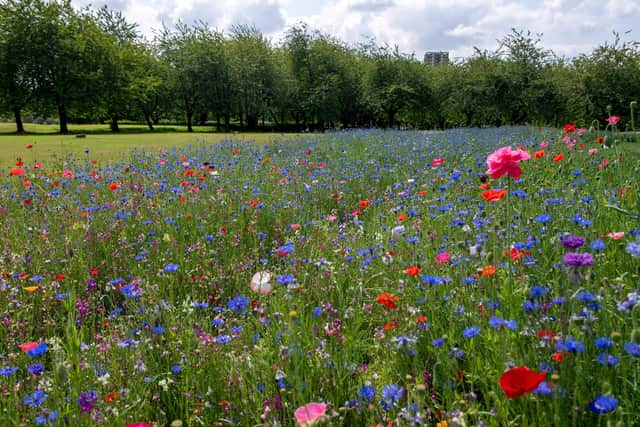Council tax or water bill discounts should be used as sustainable gardening incentives, suggests University of Sheffield academic
According to new study from the University of Sheffield, policymakers should offer incentives to encourage gardeners to use environmentally sensitive techniques to help combat climate change in cities and boost communities' health and wellbeing.
The research, published by Professor Ross Cameron in the Urban Forestry and Urban Greening publication, highlights that as gardens become increasingly important in the battle against the extreme effects of climate change, financial incentives should be considered to ensure they are well stocked with plants.
Advertisement
Hide AdAdvertisement
Hide AdProf Cameron argues that, unlike previous eras, where private garden management has largely been left to the discretion of the homeowner, radical changes in policy and practice are now required if councils are to deal effectively with the impacts of climate change and biodiversity loss in cities.


He says: “The point I'm trying to make is that in the future, we're going to have to value urban green space in general, for its ability to try and cope with extremes of weather, particularly, but also to provide resource for wildlife. It's basically trying to offset bigger costs later by encouraging action now. Hopefully you would do that based on good will but it may well be that we have to think about some sort of incentives.”
Ensuring urban gardeners have the ability to grow planted gardens offers numerous benefits for the environment and communities, say researchers, while banning materials such as pesticides could also be advantageous.
Professor Cameron adds: “Gardens account for a third of all our urban areas and are vital spaces in terms of keeping our buildings and city environments cool in summer, absorbing rain to avoid flash flooding and providing an important refuge for wildlife.
Advertisement
Hide AdAdvertisement
Hide Ad“Gardens need to be green and full of plants to be beneficial to the local environment, and some types of garden are more beneficial than others.


“The paradox is that many gardens are not actually green and some trends in garden design can be very damaging for the urban environment. We have paved them over to house the car, or provide sterile patio space; factors that increase urban temperatures and increase flooding risk.”
Prof Cameron outlines potential incentives that could be offered by policymakers to ensure gardens remain green and well-planted.
These include: offering financial rewards – such as a reduction in council tax or water bills – for house owners with more than 50 per cent of their garden space planted; financial incentives to plant or maintain trees in gardens; and banning or restricting features that damage environmental processes such as having a maximum area artificial grass can cover and banning synthetic pesticides for home garden use. He also argues that planning processes should have mandatory requirements to include and protect well-planted areas.
Advertisement
Hide AdAdvertisement
Hide AdWill Teare, 32, from Norton Lees in Sheffield, and his family have been planting a garden that provides a home for wildlife as well as a space for them to enjoy at the same time.


He said: “When we moved into our house, we thought about how we could create a garden that would help us be more connected to nature, so the most important thing for us has been that it benefits wildlife.
“Humans are responsible for a lot of the loss of habitat for wildlife and we wanted to invite it back into the garden. Everything we try in the garden, whether it is the plants we use, or having a go at creating different habitats in the garden, say with a woodland type area or pond, needs to have value for the wildlife.
“The family gets a lot of enjoyment out of it, the birds coming to nest, or watching the frogs and newts around the pond; it brings the garden to life, and is a source of excitement for the kids.”
Advertisement
Hide AdAdvertisement
Hide AdMr Teare’s garden was featured on a recent episode of Gardeners’ World on Friday, April 14.
Prof Cameron is also the author of How plants can save your life, a new book exploring the science behind how introducing plants into your life and space can improve well-being. It will be published by Quercus on May 25.